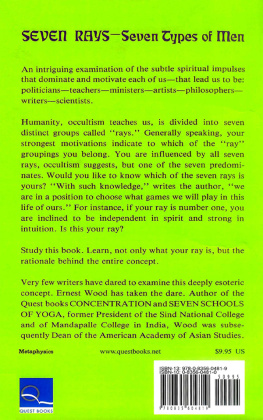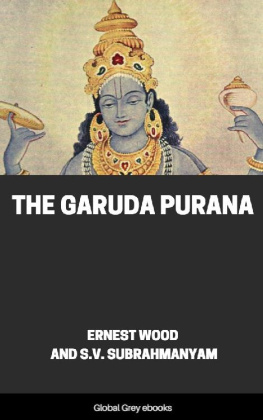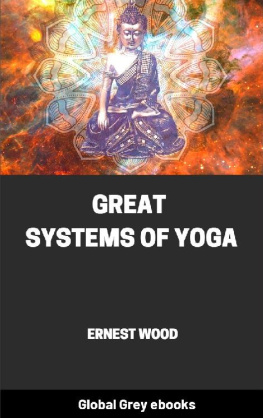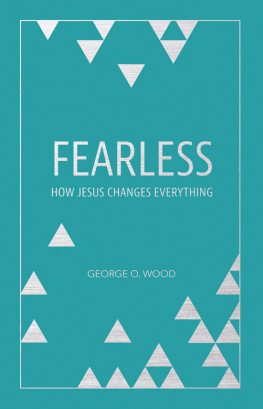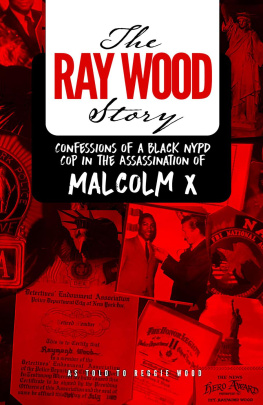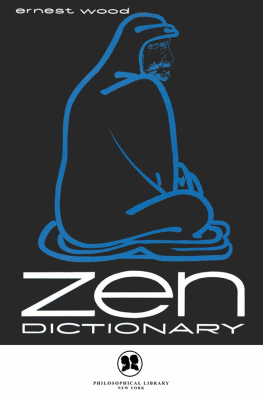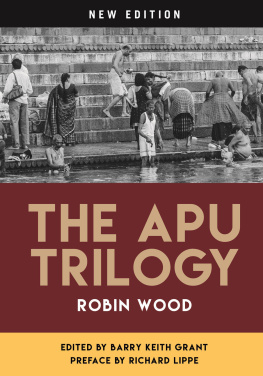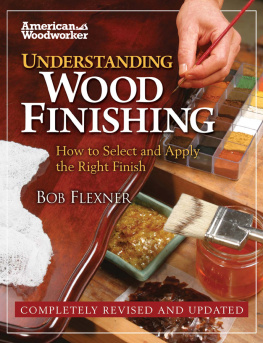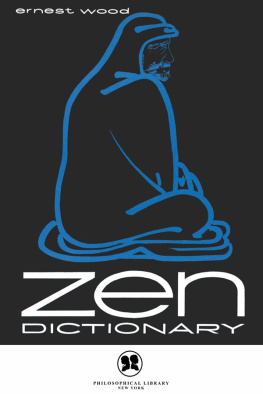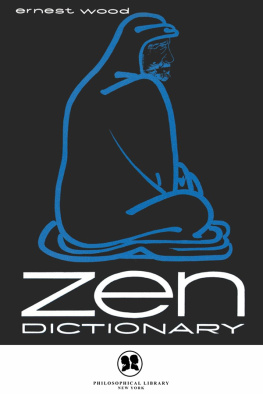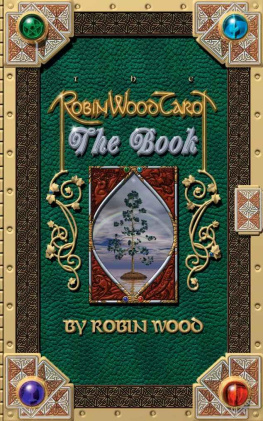Ernest Wood - The Seven Rays
Here you can read online Ernest Wood - The Seven Rays full text of the book (entire story) in english for free. Download pdf and epub, get meaning, cover and reviews about this ebook. year: 1989, publisher: Quest Books, genre: Science. Description of the work, (preface) as well as reviews are available. Best literature library LitArk.com created for fans of good reading and offers a wide selection of genres:
Romance novel
Science fiction
Adventure
Detective
Science
History
Home and family
Prose
Art
Politics
Computer
Non-fiction
Religion
Business
Children
Humor
Choose a favorite category and find really read worthwhile books. Enjoy immersion in the world of imagination, feel the emotions of the characters or learn something new for yourself, make an fascinating discovery.
- Book:The Seven Rays
- Author:
- Publisher:Quest Books
- Genre:
- Year:1989
- Rating:5 / 5
- Favourites:Add to favourites
- Your mark:
- 100
- 1
- 2
- 3
- 4
- 5
The Seven Rays: summary, description and annotation
We offer to read an annotation, description, summary or preface (depends on what the author of the book "The Seven Rays" wrote himself). If you haven't found the necessary information about the book — write in the comments, we will try to find it.
Wood examines the intriguing esoteric idea that humanity is divided into seven spiritual groups, according to our fundamental drives and aspirations.
The Seven Rays — read online for free the complete book (whole text) full work
Below is the text of the book, divided by pages. System saving the place of the last page read, allows you to conveniently read the book "The Seven Rays" online for free, without having to search again every time where you left off. Put a bookmark, and you can go to the page where you finished reading at any time.
Font size:
Interval:
Bookmark:

Copyright, The Theosophical Publishing House, 1925
Fifth Quest Book printing 2016, published by The Theosophical Publishing House, a department of The Theosophical Society in America.
Library of Congress Cataloging in Publication Data Wood Ernest, 1883-1965.
The seven rays.
(A Quest book)
1. Theosophy. I. Title.
BP565.W67 1976 212.52 76-4909
ISBN 978-0-8356-0481-9
Printed in the United States of America
It was in The Secret Doctrine of H. P. Blavatsky that the modern world was first presented with the phrase The Seven Rays. It went along with a statement that all things and beings in the worldall forms of mind and matterarose from combinations of seven fundamental impulses. It was maintained that the substance or basis of the whole worldobjective and subjectiveis spiritual, which means, to practical and realistic persons, something beyond thought
We know that thought grows up first as the servant of the body, and that it goes on to become the servant of the pleasures of the mind, including the enjoyments of understanding, of affection, of the sense of power, and self-respect. It is a third step that is indicated, when we say that it will become the servant of the spirit, when it becomes responsive and obedient to impulses from above, which are in no way born from or coloured by its own previous experience.
The old terms spirit, soul and body fit very well into this outlook, if we take the soul to mean the mind in its fulness, with all its thinking, feeling and willing, and take the spirit of man to be something beyond it, completely indefinable in terms of mind or body, but necessary to their existence and interaction.
The statement that there are seven rays or ultimate and distinct elements of life impulse may best be taken as a vast generalization. The question then arises: What is the best way to ascertain whether this generalization is true or not? The answer to that is: The proof of the pudding is always in the eating. Observe that it works, or it pays, at least in human life.
All those scientific knowledges which are concerned with facts beyond the direct reach of our senses began as theories. We put such theories to the test of action in the course of our practical living. If they work without fail we accept them as true in their relative fields, and use them as fully as possible in our lives. This is what we are always doing in all matters, small or great.
This is surely the method to be followed also when we are confronted with the statement that there are seven rays, or, as we sometimes express it, seven types of men. It has been found by thousands of people who have read this book, which has now been popular for over a quarter of a century, in its earlier editions, that this study of the Rays has helped to provide them with vocational and avocational guidance, in the broadest and fullest sense. It gives a very clear picture of human living and its problems, and thus opens up the way for the more intelligent use of our faculties. Half the business of walking, it is well known, is in the seeing, and only half in the workings of legs and feet; so also with regard to all human actionshalf is knowing and half is doing. To know about the rays is a help.
It is often remarked that we are small creatures in an immense world. Individually our scope is small. It is only in quality, not in quantity, that we can be great. Is this not perfectly evident, upon a moments thought? Are we not in a hall of a million games, each seated at one table or chess board, now winning, now losing, materially, but spiritually always gaining, from both lost and won games, provided we have made the effort to win? It is a joyful truth, too, that much quantity of living is not expected of us, and would in most cases be an unkind encroachment upon the lives of our companions.
With such knowledge, we are in a position to choose what games we will play in this life of ours, or in what is left of it, even if only a day. With such purposefulness in practical living we shall soon begin to be aware of shafts of spiritual experiencestrengthening our powers, illuminating our understanding, softening our affections, and opening the door to a future incomparable with the past.
The term The Seven Rays is applied especially to the life-side of our living. It is recognized that that is where our light lies, though it be a darkness as compared with what is to come. Our consciousness is at all times far more important than our circumstances. It does not matter very much whether we juggle with golden balls or with pebbles from the beach. But the state of our consciousness is vitally important. One says: I love apple pie, orperhapsmangoes, but what one really enjoys is not the pie or the mango, not even the taste of the pie or the mango, but the consciousness of the taste of the pie or the mango.
It is recognized, of course, that apple pies and mangoesall the material things and sensationsare greatly important; that an objective world, always presenting problems, always resisting to some extent our desiring and thinking and willing, is necessary to the kind of consciousness we now enjoy, steeped and bathed as it is in the triple experience of the mind. We expect something more, and it will surely come, but the way to its coming will be through fulfilment, not through any sort of suicide, physical, emotional, or mental.
In this study, the importance of little things becomes very evident. Do it well, becomes the motto, even if it is only the picking up of a pin or the putting down of a pen. And even then, not Do it well as a means to an end but as a delight in itself, which will soon be discovered when one ceases to act merely as a means to an end, but rather with the true valuation of the present moment, which is the action being done. I am reminded in this matter of a short poem in this connection written by Emerson, entitled, Heri, Cras, Hodie:
Shines the last age, the next with hope is seen,
To-day slinks poorly off unmarked between:
Future or Past no richer secret folds,
O friendless Present! than thy bosom holds.
Any ulterior motive can vitiate the moment, and prevent the discovery.
If there are seven rays or types, and each one of ns belongs, as it were, especially to one of these, and conducts his pathway in life accordingly, will there not be a tendency to narrowness or over-specialization? This is a question often asked. The answer is, Not if we understand the situation. All the seven rays are always present in everybody, hut one of them in each person is the captain of the team or the president of the board, and the other six rally round, and use their own specific talents to help carry out his purpose. A comparison with High School education may help us to understand this. The ideal in that is, I believe, to give about half the time to the students special branch of study and distribute the other half of the time to a variety of subjects, comprising general education.
It is ones own ray that provides the deep motive of ones living, determines where ones happiness lies, and is the key to ones decisions. What a difference there is between the pleasures, and the lives, of a cat and a dog! It is the same with different human beings. We rejoice in different kinds of goods, and of goodness. In the ray impulses, one mnst add, there is only goodness.
It is in the nature of ns human beings to respond to good things. We are born to goodness, as the sparks fly upwards. It is for this reason that in all men we find a response to some sort of goodness. If there is sometimes a disdain of goodness, this rule is still not broken, for the person who displays it does so only on the misunderstanding that it is opposed to some other sort of goodness of which he is a devotee. Thus children delight in the exploits of malefactors, as shown in some of the so-called comic strips They find a manliness there, to which they are striving unawares. Everything is turned to the same purpose in the end. When there is ridicule of the contrary qualities, the sissies, one realizes that it must require great freedom of spirit, courage and manliness to be one of them.
Font size:
Interval:
Bookmark:
Similar books «The Seven Rays»
Look at similar books to The Seven Rays. We have selected literature similar in name and meaning in the hope of providing readers with more options to find new, interesting, not yet read works.
Discussion, reviews of the book The Seven Rays and just readers' own opinions. Leave your comments, write what you think about the work, its meaning or the main characters. Specify what exactly you liked and what you didn't like, and why you think so.

